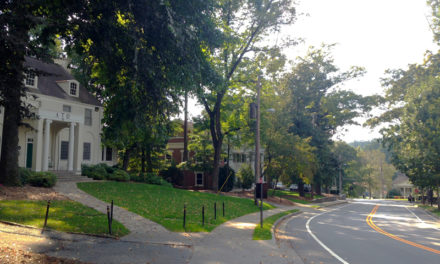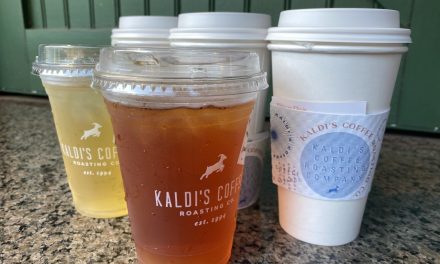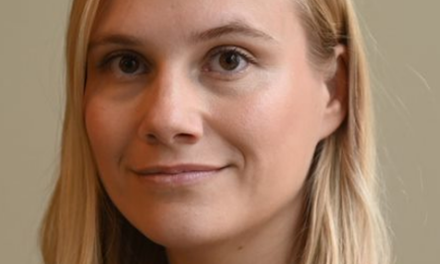English/Creative Writing is a joint major. Is that the same as double majoring?
No, it’s not. Creative Writing is a program in the English department, which means you take some English classes as well as Creative Writing workshops. Because English/Creative writing is a joint major, you can major in that as well as something else.
English/Creative Writing seems so broad. Am I able to specialize in one certain type of Creative Writing?
It is 100 percent up to you. Some students only take certain classes, and others take everything the program has to offer. I personally only write fiction and nonfiction, so I’ve never taken a poetry workshop. But I know other students who take screenwriting, poetry and fiction. It’s really up to the interest of the writer.
Why do I have to apply to be in a Creative Writing class?
Creative Writing classes need to be pretty small, so I think the application helps them determine the desired interest in the courses offered. Certain workshops might ask for a writing sample, but that’s only if the class is specializing in a genre, like novellas. For the most part, as long as you take the time to fill out the application (it only takes a few minutes), you should get into the workshop you want if there is space. The application also helps the program make sure students are ready for the workshop they are applying for. For example, you can’t take advanced fiction without intermediate, so the application helps to ensure students end up in the workshop that’s right for them.
Creative Writing classes are in a “workshop” format; what does this mean?
Every professor is different in how they run workshop, but for the most part, you can expect to distribute your work to every student in the class. Instead of just turning in your stories or poems to your professor, you give them to your classmates and then they critique your work while you are present. For some, this can be extremely nerve-wracking because not all of the feedback is going to be amazing. But the goal of workshop is for the writers to get different perspectives on their work so that they can better revise it in the future.
What’s your favorite class you’ve taken within the major?
I’ve learned a lot from all the fiction workshops, but I really enjoyed Creative Nonfiction. It was just so different from the other workshops I had taken. I ended up liking it so much that now I’m writing my Honor’s Thesis in nonfiction, something I’d never thought I’d do.
Why are you majoring in Creative Writing?
Originally, I was taking Creative Writing courses to fulfill my continued writing requirements. I was a Political Science major. I was scared to change my major, but I realized that my Creative Writing class was the only thing I looked forward to all week. It was a hard decision to make, but now I can’t imagine my time at Emory spent any other way. Being a Creative Writing major has led me to some amazing opportunities, and it’s because I’m studying something I love.
What’s the most challenging thing about the Creative Writing major?
Learning to trust your judgment. Sometimes in CW workshops, you will get advice from your classmates and even your professors that you don’t agree with. You have to learn when it’s right to make the changes they suggest, and when you need to go with your instincts and work with what you have. Remember that you are the writer, and at the end of the day it’s your name attached to the work.
How hard are Creative Writing classes?
I wouldn’t suggest taking a CW class for an easy continued writing requirement. There is usually a lot of reading involved, as well as a portfolio of work that can amount to almost 50 pages of writing by the end of it. Of course, I think the classes are manageable because I’m writing and reading about things I enjoy. But it can be hard to churn out three 15-20 page stories back to back.
What specific aspect of being a writer do you think Emory’s Creative Writing program has prepared you for?
I’ve really learned to push myself because of Emory’s Creative Writing program. I think that a lot of the professors in CW expect more than just “student work” from their workshops. Instead of just telling students their work is finished, they often encourage them to keep revising until the story is of publishable quality.
What should a student do if they’re not sure they want to major or not?
Don’t worry so much about being a major. Just take the classes and see if you like them. If you do, you can always declare, and if you don’t, you can at least know that you tried.
What’s the best thing about being a Creative Writing major?
You get some cool perks. Last year, I got to take a class with Salman Rushdie, which was amazing. They always bring in really interesting writers for the students to engage with.
The Emory Wheel was founded in 1919 and is currently the only independent, student-run newspaper of Emory University. The Wheel publishes weekly on Wednesdays during the academic year, except during University holidays and scheduled publication intermissions.
The Wheel is financially and editorially independent from the University. All of its content is generated by the Wheel’s more than 100 student staff members and contributing writers, and its printing costs are covered by profits from self-generated advertising sales.






Here go some answers to questions raised above: